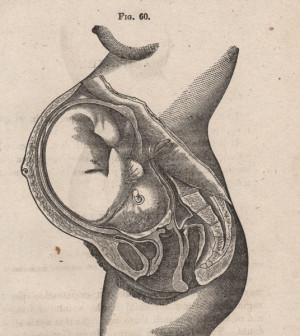- 8 Ways to Increase Dopamine Naturally
- 7 Best Breads for Maintaining Stable Blood Sugar
- Gelatin vs. Collagen: Which is Best for Skin, Nails, and Joints?
- The Long-Term Effects of Daily Turmeric Supplements on Liver Health
- Could Your Grocery Store Meat Be Causing Recurring UTIs?
- Are You Making This Expensive Thermostat Error This Winter?
- Recognizing the Signs of Hypothyroidism
- 10 Strategies to Overcome Insomnia
- Could Artificial Sweeteners Be Aging the Brain Faster?
- Techniques for Soothing Your Nervous System
Many U.S. Parents Share Bed With Babies Despite Risks: Survey


MONDAY, Sept. 30About 14 percent of infants in the United States frequently share a bed with other people, and this life-threatening practice has more than doubled since the early 1990s, a new study says.
The survey of nearly 20,000 caregivers nationwide revealed that the percentage of infants who shared a bed with another person rose from 6.5 percent in 1993 to 13.5 percent in 2010. Eighty-five percent of the bed-sharing was with parents and the remainder was with other adults and children.
Infants who share a bed with an adult or another child are at increased risk for sudden infant death syndrome (SIDS) or death from other sleep-related causes. To reduce this risk, the American Academy of Pediatrics recommends that infants sleep in the same room, but not in the same bed, as caregivers.
“It’s important for doctors to discuss sleep-time habits with new parents in order to convey the risks of bed-sharing clearly,” study co-author Marian Willinger, special assistant for SIDS at the U.S. National Institute of Child Health and Human Development, said in an institute news release.
SIDS is the unexplained death of a child before the first birthday. More than half of the caregivers surveyed since 2006 said that they had not received advice from their doctor about bed-sharing, according to the study published Sept. 30 in the journal JAMA Pediatrics.
The study also found that caregivers whose doctors advised against infant bed-sharing were 34 percent less likely to sleep in the same bed with an infant than caregivers whose doctors didn’t offer advice. And caregivers whose doctors gave neutral advice about the issue were more likely to allow their infants to share beds than caregivers who received no advice from their doctors.
Willinger and her colleagues found that infant bed-sharing became more common among all ethnic and racial groups over the 17 years of the study. During that time, bed-sharing increased from about 5 percent to about 9 percent among white infants, from almost 13 percent to almost 21 percent among Hispanic infants, and from about 21 percent to almost 39 percent among black infants.
“The disparity in nighttime habits has increased in recent years,” study first author Dr. Eve Colson, of Yale University School of Medicine in New Haven, Conn., said in the news release. “Because African-American infants are already at increased risk for SIDS, this trend is a cause for concern.”
More information
The American Academy of Pediatrics offers a child care provider’s guide to safe sleep.
Source: HealthDay
Copyright © 2026 HealthDay. All rights reserved.










